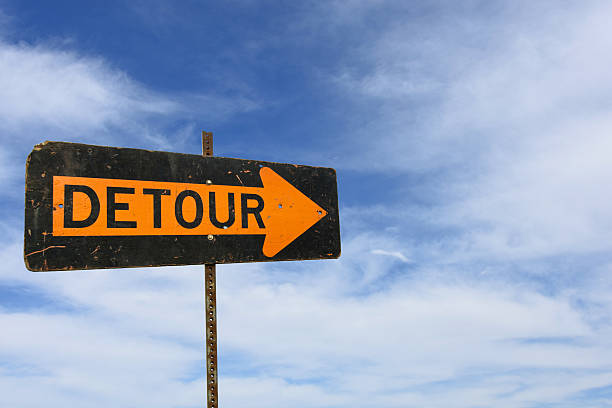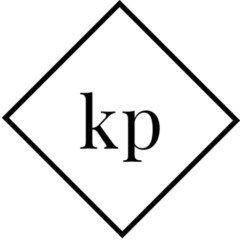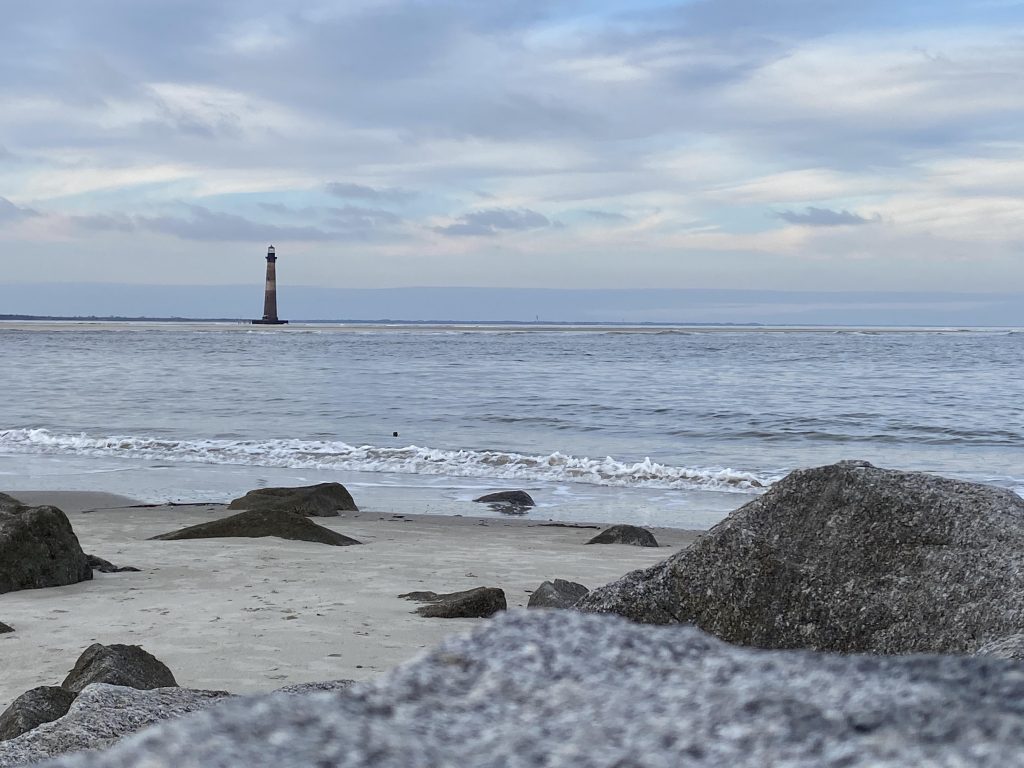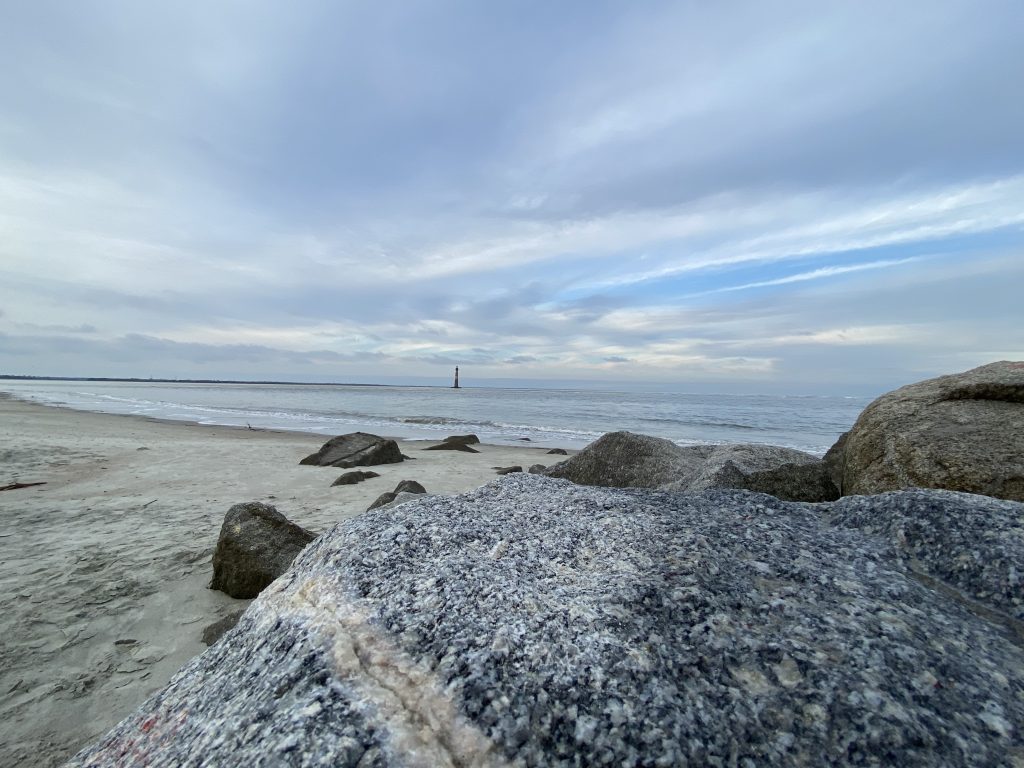As hard as I have tried and as diligently as I have worked to control my direction through Life, as much as I have planned and anticipated and laid out my future, there have still been critical points where things simply did not go my way.
On many occasions over the past several months, I did not pass through the checkpoints that I had long intended to pass through. There have been moments where Life has sent me on crazy, unforeseen, unpredictable—even painful—detours.
And there will be many more, I am sure.
To resist Life’s direction only seems to make these detours more painful. My way may not be Life’s Way, and the sooner I come to embrace and celebrate that, the happier and more fulfilled I will probably be.

I am cautious about preaching unearned wisdom. My only intent is to share my thoughts and experiences when I feel like I have something helpful—and dare I say original—to share.
When I graduated and received my commission from the US Naval Academy back in May 2020, I truly felt on top of the world. Things could not have been going better. I had graduated near the top of my class, got my first choice service assignment, and was about to start a new and exciting adventure with some of my closest friends. Pandemic aside, the plan I made for myself was coming together and the direction was clear. Full speed ahead.
Then I got pretty sick with C*vid-19. My bed was my companion for the better part of six weeks and I was in and out of the ER three times. Frankly, I considered myself a pretty healthy and fit guy, so I didn’t see that one coming. It was a pretty miserable time, but I was fortunate to make a full recovery. The plans I made continued along. This was just a hiccup, right?
Then my girlfriend of 3+ years broke up with me. I felt completely blindsided and that sucked pretty bad. This was really not part of the plan!
Okay, just a couple of unforeseen events, right? Although these seemed like pretty major detours at the time, the plan was not entirely lost. Some adjustments would need to be made and the plan would look slightly different, but I would nonetheless be able to carry on and pursue what I had originally intended to.
My training as a Nuclear Submarine Officer began in November 2020. It is now November 2021—one and a half years since I embarked on my career and over a year since I checked in to begin training…
…and I am no longer doing that thing which I set out to do. I am no longer training for the job that I chose and planned for over my four years at the Naval Academy.
And why not?
I worked my tail off for four years to prove my worth as a Naval Officer and demonstrate my potential for service on submarines.
I passed the technical interviews at Naval Reactors in Washington, D.C.
I sat across from the four-star Admiral that now sits where Rickover sat and he allowed me to join his community.
I even made it most of the way through Nuclear Power School with pretty high scores.
I checked all of the boxes I possibly could, but there is more to Life than checking boxes.
This is not a sob story. I am not telling this story to solicit pity or tout my past achievements. I am telling this story to illustrate that even when everything seems to be going right, even when everything is going exactly as planned, even when you control and optimize as much as you possibly can, there are still intractable factors and events beyond your influence that can and will send you off in a completely different direction than the one you had intended.
Or, at least, that’s what happened to me.
Several months ago, I learned that I have a medical condition which disqualifies me from service. And rightfully so! Work in the Navy, and especially on submarines, is largely characterized by a lifestyle which is in direct conflict with what I need to do in order to be a physically healthy guy. This means I will not be spending the next few years unduly suffering because of my own pride, ego, or misdirected ambition getting in the way of taking proper care of myself.
It has taken me a lot of time to see it this way. I was pretty pissed when this all started happening. I certainly had a victimized ‘Why Me?’ attitude.
‘Seeing the forest through the trees’ was really hard for me. I was having trouble finding the right perspective because I had become so hyper-focused on a single outcome—a single plan that could not be deviated from. This was a plan that I had spent so much time and effort preparing. Deviations were not allowed! I didn’t account for any.
But that’s what Life is; a series of deviations from the plan.
This experience has forced me to re-assess where my own measures of success and self-worth are coming from. It forced me to reflect and ask myself some hard questions. Where was I coming up short? In what ways was I neglecting important aspects of my own personal well-being? (There were a lot.) Where were my blind spots with respect to what I could and could not control?
The truth is that I was so caught up in this singular plan – so preoccupied with dodging individual trees that I was unable to zoom out and see a better way through the forest.
Life showed me.

Making plans is an effective way to achieve goals, but planning too much or adhering too strictly to them can get in the way of living well when circumstances change, as they often do. I found that it is important to revisit these goals and be honest with myself about whether they still align with my core values and with what I want out of Life – or what Life wants from me – in these new circumstances.
My intentions remain the same as they have always been: to leverage my abilities in an impactful way wherever I go, to work on solving important problems, and to help other people suffer less. I still intend to fulfill my responsibilities faithfully and dutifully to the extent I am able. I do not intend to let future plans get in the way of what is truly important, nor do I intend to let any future goals come into conflict with my own physical, mental, and emotional well-being.
So what, you may be wondering, is the plan now?
There is no plan. There is just Life.
Thank you to Cecily, Fish, and Noah for helping me communicate my ideas.




